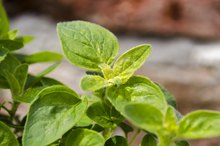Ma Huang Tea for Weight Loss
Quick weight loss with no extra effort required is not only a silly myth, it can be a dangerous one. Products like cleanses, diet pills and ma huang tea promise miracle weight loss results, but the truth behind them is less a miracle than a curse. Ma huang is a natural stimulant purported to increase your metabolism, suppress your appetite and enhance your body’s natural fat-burning mechanism. These claims have some basis in fact, but they are not the whole story.
Weight Loss Facts
Weight loss can only be achieved by operating at a calorie deficit. The healthiest way to do this is to eat a lean diet based around fresh vegetables, raw fruits, essential fatty acids, whole grains and lean proteins. Substances like ma huang that rev up your metabolism do so only for short periods. Once you stop taking them, your metabolism slows back down and if you have not changed your diet and lifestyle, the extra weigh will pile right back on.
Ma Huang Facts
Herbal Tea That Makes You Feel Full & Not Hungry
Learn More
Ma huang is the Chinese name for ephedra, which the National Center for Complementary and Alternative Medicine explains contains the natural stimulant ephedrine. Ma huang is a shrub-like evergreen plant that is native to Mongolia and Central Asia, called ephedra equisetina. The plant’s leaves and stems are harvested, dried and then sold in the form of capsules and tablets. The dried leaves and powders are also sold for use as tinctures, teas and extracts.
Effects
Ephedra is a stimulant. Its effects on your body are similar to amphetamines and include suppressing your appetite, raising your heart rate and blood pressure and increasing heat production. All of these effects may make you feel as though you are burning calories faster, but any gains in that area are short-term and temporary. The strain this puts on your heart may not be, which is one of the reasons that ephedra was banned in the United States.
Warning
Ephedra's Effects on Adrenals
Learn More
The US Food and Drug Administration banned the sale of any products containing ephedra in 2004 and then again in 2007. Reported adverse reactions to ephedra include changes in blood pressure, chest pain, dizziness, headaches and gastrointestinal problems. Other reported side effects were heart attacks, hepatitis, strokes, seizures and psychosis. There were 32 reported deaths, according to Columbia University’s Go Ask Alice! Heath advice website
Related Articles
References
Writer Bio
Emmy-award nominated screenwriter Brynne Chandler is a single mother of three who divides her time between professional research and varied cooking, fitness and home & gardening enterprises. A running enthusiast who regularly participates in San Francisco's Bay to Breakers run, Chandler works as an independent caterer, preparing healthy, nutritious meals for Phoenix area residents.









